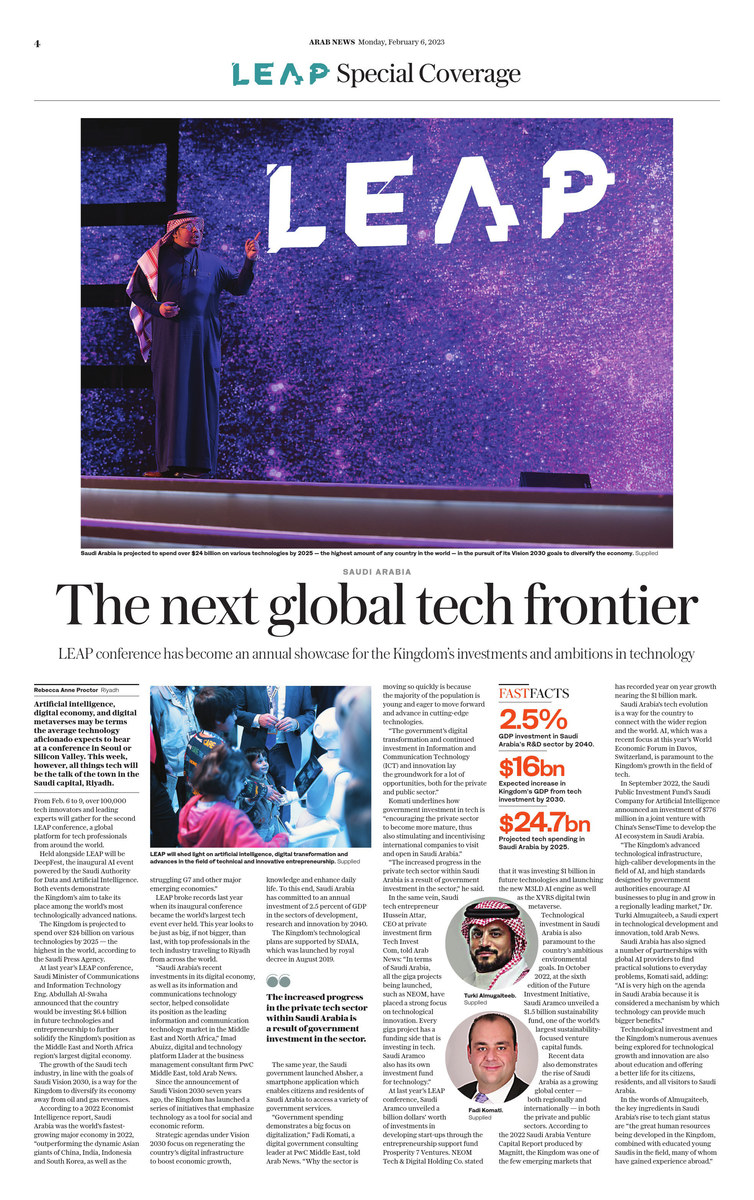Public sector cannot ignore data literacy, not when governance is paramount

https://arab.news/pd5us
Data literacy training can help leaders and employees realize the difference data and analytics makes in delivering their work.
Data literacy is becoming increasingly important in the public sector as more data is collected and used for decision-making. Government officials, policymakers and other public sector employees must understand and effectively use data to make informed decisions that benefit the community.
One of the main benefits of data literacy in the public sector is the ability to make data-driven decisions. It means using data to identify problems, evaluate options, and measure the success of solutions. For example, data can be used to identify crime patterns in a specific neighborhood and determine the most effective ways to reduce them.
It can also be used to evaluate the effectiveness of different policies, such as education programs or transportation infrastructure projects. By using data to inform decision-making, public-sector employees can ensure that resources are being used effectively and that policies have the desired impact.
Data literacy enables public sector employees to communicate effectively with data professionals and other stakeholders. For example, data analysts and scientists may use technical jargon and concepts that non-experts may not understand. Public sector employees can better understand and communicate with these professionals with a basic understanding of data and its usage, fostering better collaboration and more effective decision-making.
Data literacy is also vital for transparency and accountability in government. By understanding data and its limitations, public sector employees can ensure that data is being used ethically and responsibly. In addition, it can prevent errors or biases in data analysis, leading to flawed decisions.
Data literacy also helps understand and communicate data to the public, which helps build trust and transparency within the community.
Several factors limit governments’ ability to identify, analyze, and base decisions on data across teams and departments. However, from conversations with customers and partners, common themes are emerging — budget constraints, staffing pressures and access to the right skills. When making critical decisions, data-driven insights can help government leaders navigate these challenges.
There is no silver bullet, one-size-fits-all solution on how data and technology are perceived and used to deliver better public sector outcomes. However, when seen through the cultural lens, data literacy training can help leaders and employees realize the difference data and analytics makes in delivering their work. In fact, according to Forrester’s 2022 data and analytics survey, 75 percent of organizations are expanding data literacy training, while 36 percent plan to have an executive in the role of head of data governance.
Data literacy training can help leaders and employees realize the difference data and analytics makes in delivering their work
Reham Al-Musa
Data literacy is also essential for the public sector in terms of economic development. Data can be used to identify economic trends and opportunities and develop policies and programs that support economic growth. For example, data can be used to identify rapidly growing industries and develop policies that support their growth. Furthermore, data literacy is also important for the public sector in terms of creating more efficient and effective government services. Data can be used to identify areas where government services are not meeting the community’s needs and to develop solutions that better meet those needs.
Government institutions and departments are responsible for a nation’s most sensitive information, including defense and public safety data. Therefore, governments need complete control and transparency surrounding who views and uses this data.
Cloud infrastructure built from the ground up with security in mind gives governments visibility of their data and peace of mind that it is being stored and processed safely. Depending on the specific needs of government bodies, deployment models will often strike a balance between public, hybrid and private cloud.
Private cloud environments are especially well-suited to mission-critical contexts on the grounds of heightened security.
Saudi Arabia’s Cloud-First Policy, the Kingdom’s blueprint for accelerating cloud adoption among Saudi organizations, highlights the importance of cloud adoption and presents a guide for Saudi entities on how to accelerate their cloud transformation journey.
The policy recognizes the advantages of cloud deployment, such as enhanced agility, security and scalability for businesses.
While most public services are available online, governments see opportunities to enhance their digital credentials. Data is the key to unlocking their potential when communities need it most. However, public sector employees need the right knowledge and tools to unlock the benefits of analytics and personalization.
By empowering government leaders and their teams to collaborate across siloes and use data-driven insights as the basis of decision-making, governments can set new standards in data literacy. Moreover, investment in secure cloud infrastructure and solutions can safeguard sensitive data while transforming back-office processes and service delivery. Ultimately, the result will be better outcomes for citizens.
Data literacy is crucial for the public sector to make informed decisions, improve transparency and accountability, support economic development, and create more efficient and effective government services. Investing in data literacy training for public sector employees ensures that data is being used effectively to benefit the community. As the amount of data collected and used in the public sector continues to grow, it is more important than ever for public sector employees to understand and use data effectively.
• Reham Al-Musa, vice president, cloud applications - public sector and country leader – Saudi Arabia, Oracle













































